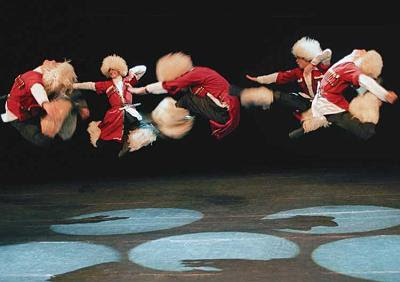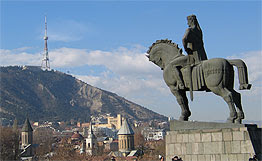 The fabled choreographer George Balanchine, whose ethnic roots were in the former Soviet republic of Georgia, famously proclaimed that "ballet is woman."
The fabled choreographer George Balanchine, whose ethnic roots were in the former Soviet republic of Georgia, famously proclaimed that "ballet is woman."But it is the men who dominate the Georgian State Dance Company. And Saturday night at the Auditorium Theatre -- where the spectacular company of 70 dancers and 10 musicians put on one of the most thrilling, technically astonishing spectacles to come this way in a long time -- those men literally generated sparks.
Whether whirling on their knees at jet speed, spinning like gyroscopes on the curled toes of their sleek, leather-tipped black boots, or soaring through the air while engaging in death-defying combat (the clash of their knives and shields sending little bolts of lightning into the air), the troupe's male dancers brilliantly captured the wild, highly competitive nature of their country's alpha types. [More]







































